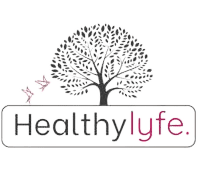So, you’ve decided to take your fitness journey to the next level? Fantastic! If you’re just starting out at the gym and are a bit lost about what to eat, you’re in the right place. A well-balanced diet is crucial for making the most out of your workouts and achieving your fitness goals. Let’s break down a beginner-friendly diet plan specifically for those who are hitting the gym and aiming to see real results.
Why a Proper Diet is Essential
It’s easy to think that lifting weights and doing cardio are the only things you need to focus on at the gym. However, without the right fuel, your progress can stall. Think of your body as a high-performance car. You wouldn’t put the wrong type of fuel in it and expect it to run smoothly, right? Similarly, the right nutrients help your body perform at its best, recover faster, and build muscle efficiently.
Understanding Your Body’s Needs
Before diving into specific foods, it’s important to understand what your body needs. Your diet should be tailored to support your activity level, fitness goals, and overall health. A good diet plan balances macronutrients—protein, carbohydrates, and fats—and ensures you’re getting enough vitamins and minerals.
Macronutrients: The Basics
Protein
Protein is a key player in building and repairing muscles. If you’re working out regularly, you need a solid intake of protein to support muscle growth. It’s like the bricks you use to build a house—without enough, your structure won’t stand strong.
- Why It’s Important: Proteins are the building blocks of muscle. They help in repair and growth. Aim for lean sources like chicken, fish, beans, and legumes.
Carbohydrates
Carbohydrates are your body’s primary energy source. They’re like the fuel for your engine—necessary for powering through your workouts and daily activities.
- Fuel for Your Workouts: Complex carbs such as whole grains, fruits, and vegetables provide sustained energy. Avoid simple sugars that can lead to energy crashes.
Fats
Not all fats are created equal. Healthy fats are essential for hormone production and overall health.
- Healthy Fats vs. Bad Fats: Opt for unsaturated fats found in avocados, nuts, and olive oil. Steer clear of saturated and trans fats found in processed foods.
Micronutrients: Vitamins and Minerals
Vitamins and minerals play a crucial role in supporting various body functions and maintaining overall health. They help with energy production, muscle function, and recovery. Include a variety of colourful fruits and vegetables in your diet to ensure you’re getting a broad range of nutrients.
Hydration: The Role of Water
Water is often overlooked, but it’s incredibly important. Staying hydrated helps maintain energy levels, supports muscle function, and aids in recovery. Aim to drink plenty of water throughout the day, especially before and after workouts.
Sample Diet Plan for Beginners
Let’s put theory into practice with a simple, balanced diet plan tailored for gym beginners.
Breakfast
- Scrambled eggs with spinach
- Whole grain toast
- A side of fresh fruit (like berries or an apple)
Lunch
- Grilled chicken breast
- Quinoa or brown rice
- Steamed broccoli and carrots
Dinner
- Baked salmon
- Sweet potato
- Mixed green salad with olive oil dressing
Snacks and Supplements
- Greek yoghurt with honey and nuts
- Protein shake post-workout
- A handful of almonds or a banana
Tips for Staying on Track
Staying consistent with your diet can be challenging. Here are a few tips to help you stay on track:
- Plan Your Meals: Prep your meals in advance to avoid reaching for unhealthy options.
- Keep Healthy Snacks Handy: Have nutritious snacks available to keep hunger at bay.
- Listen to Your Body: Adjust your diet based on how you feel and your progress.
Avoiding Common Pitfalls
Newbies often make the mistake of either eating too much or too little. Make sure you’re eating enough to fuel your workouts but not so much that you’re undoing your hard work. Also, be cautious with supplements; they should complement a balanced diet, not replace it.
Final Thoughts
Embarking on a fitness journey is exciting, and a proper diet is crucial for success. By understanding your body’s needs and sticking to a balanced diet plan, you’ll set yourself up for the best results. Remember, consistency is key.
stick with it, and you’ll start seeing those gains!
Related Articles
FAQs
How much protein should I consume daily?
For beginners, aiming for about 1.2 to 1.6 grams of protein per kilogram of body weight is a good starting point.
Can I have cheat meals on this diet plan?
Yes, it’s okay to have occasional cheat meals. Just make sure they don’t become a regular habit.
What’s the best time to eat before a workout?
Ideally, eat a balanced meal 1-2 hours before your workout. If that’s not possible, a small snack 30 minutes prior can also work.
Are supplements necessary?
Not necessarily. Whole foods should be your primary source of nutrients, but supplements can be helpful if you have specific needs or dietary gaps.
How often should I adjust my diet plan?
Reassess your diet plan every few weeks or when you notice changes in your activity level or fitness goals. Adjust as needed to stay on track.


